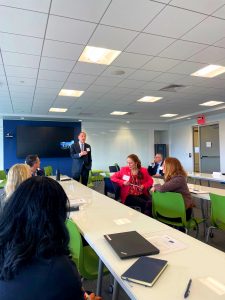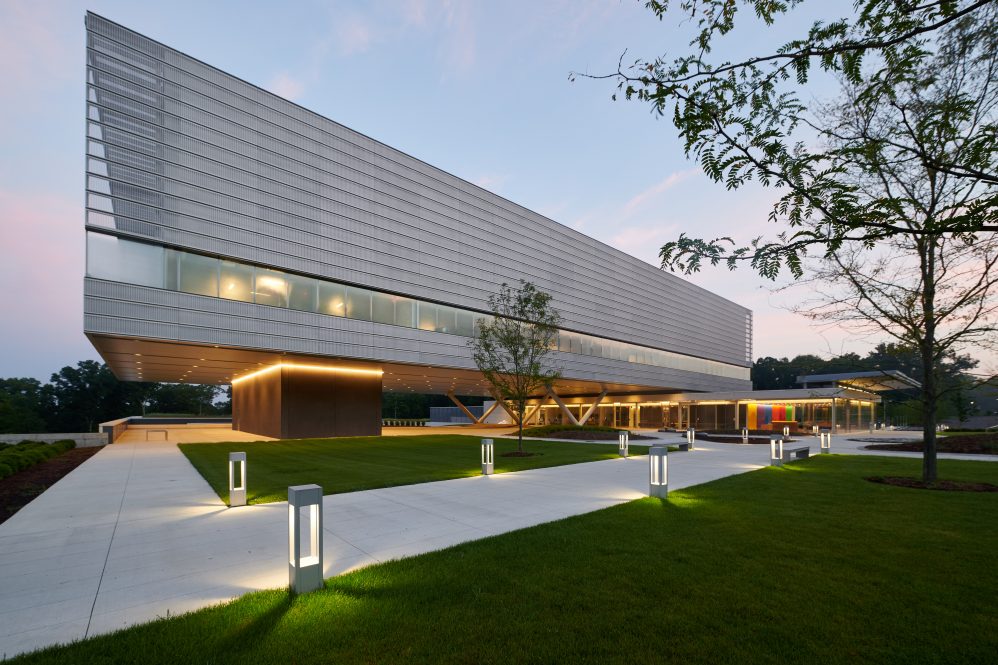QuantumCT – the multifaceted, collaborative effort to establish the state as a leader in quantum technologies – is stirring ambitions to transform Connecticut’s economy and workforce.
UConn and Yale are leading the initiative, which is designed to establish the state as the nation’s leader in developing quantum technologies for use in real-world applications. As planning continues, the universities are hosting events to draw stakeholders together to explore how to leverage the coming quantum revolution to achieve transformative and equitable economic opportunity.
“If we are successful in becoming the nation’s quantum accelerator, the ramifications are enormous,” says Pamir Alpay, UConn’s vice president for research, innovation, and entrepreneurship and the co-lead on the project. “We will help improve the speed of computers and strengthen network security, as well as make navigation more precise. We will see leaps forward in medical imaging and high-tech manufacturing, and we will be able to apply quantum principles to many more disciplines.”

In November, UConn hosted members of the initiative’s leadership and implementation teams, as well as corporate partners and community stakeholders, to align goals and participate in a panel on the implications of quantum technologies for Connecticut. The event included a session on building diversity, equity, and inclusion within the QuantumCT initiative itself and into the opportunities that could be created.
“Success with QuantumCT would mean a new industry in the state – an industry that would bring new businesses to Connecticut and affect so many of us at so many levels,” says Michael DiDonato, UConn’s project manager for the initiative. “It will create opportunities for trades workers such as electricians and plumbers, it will create new jobs like cryogenic techs or quantum networking admins, it will strengthen our economy and give us all something to be extremely proud of.”
On Thursday, Dec. 14, the UConn Graduate Business Learning Center in Hartford will host a seminar on the potential of quantum technology. The event includes breakout sessions on applications in the healthcare, manufacturing, and finance sectors, along with the skillsets required for success. Notable speakers include UConn President Radenka Maric, Hartford Mayor Luke Bronin, Yale vice provost for research Michael Crair, and Alpay.
The November event and upcoming December seminar mark notable steps for QuantumCT as the project builds steam toward establishing partnerships and initiatives around quantum technology based economic development.
QuantumCT has built a complex and extensive network of partners, hailing from Connecticut’s education, science, industrial, governmental, and community sectors. In May, NSF awarded the consortium a prestigious $1 million development award to develop plans for a “Regional Innovations Engine,” which aims build an innovation ecosystem in Connecticut focused on quantum technologies. The award also makes the team eligible to submit a proposal for a $160 million grant to turn Connecticut into the nation’s accelerator for quantum technologies.
The planning encompasses all sectors that stand to be impacted by the economic revitalization spurred through quantum technology acceleration.
Stated as simply as possible, UConn Distinguished Professor of Molecular and Cell Biology Rachel O’Neill defines quantum as using subatomic space or particles to advance technology. The impact and improvements could be shared among Connecticut’s top innovators and create new employment opportunities across industries such as defense, pharmaceuticals, energy, and finance.
Quantum is also central to the research pursuits across several disciplines among UConn faculty and students. It is a science prominent in many of the University’s research priorities, including cryptography, artificial intelligence, cybersecurity, and software development. More than a dozen researchers are involved in QuantumCT, such as members of the College of Engineering, College of Liberal Arts and Sciences, and the Technology Commercialization Services wing of the UConn research enterprise.
“There is plenty of room for QuantumCT to grow and many more variables for us to coordinate, but progress has been significant to this point,” Alpay says. “As we make connections and fortify our network, we build opportunities for research in the quantum landscape.”
More information on Quantum-CT is available at quantumct.org.



